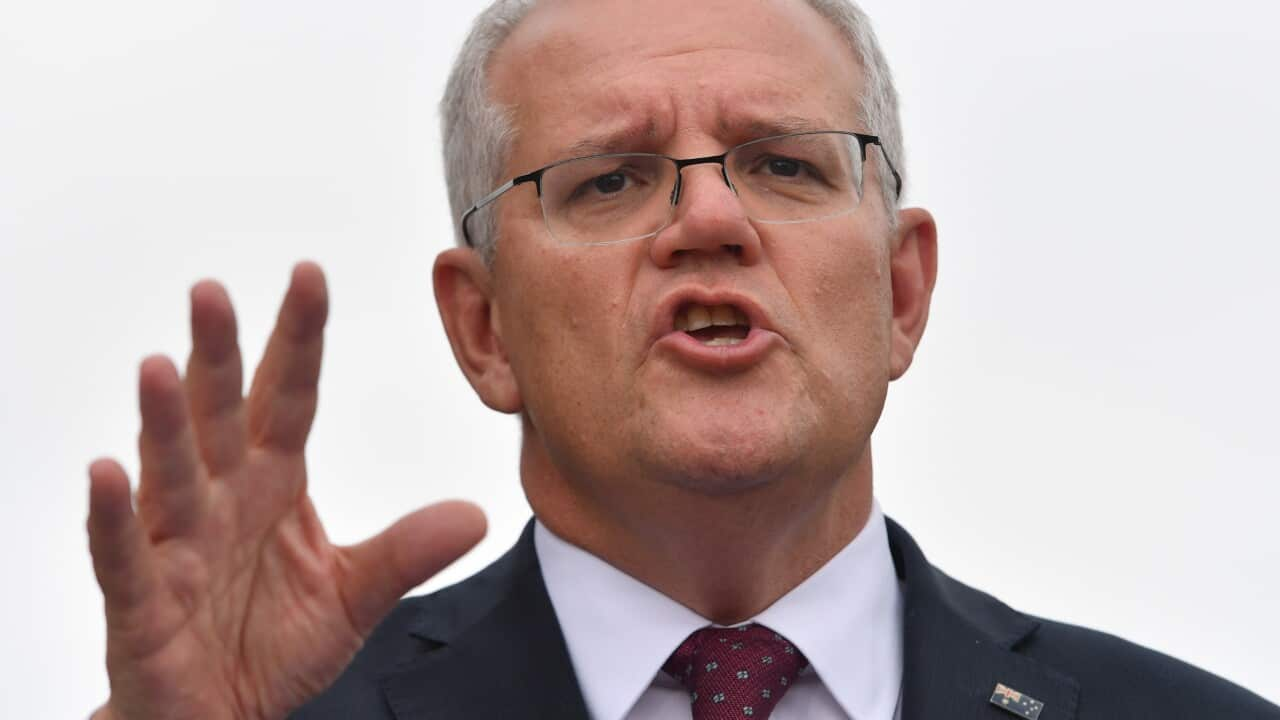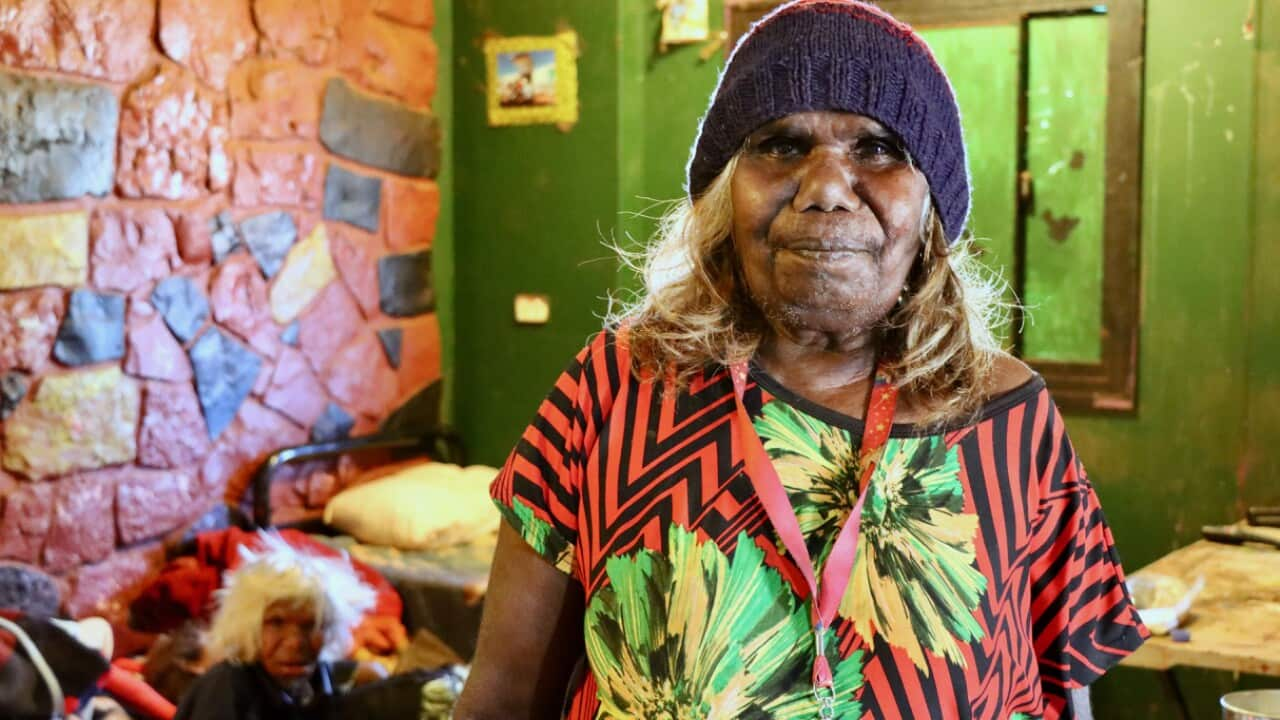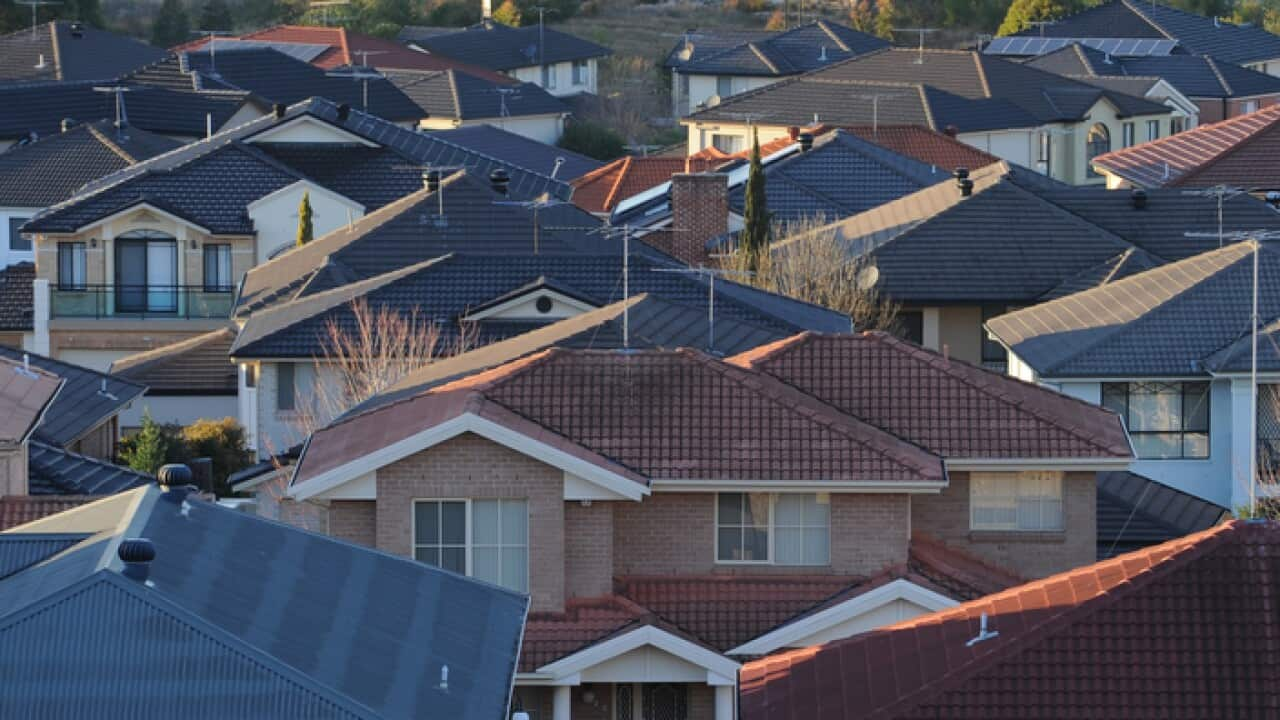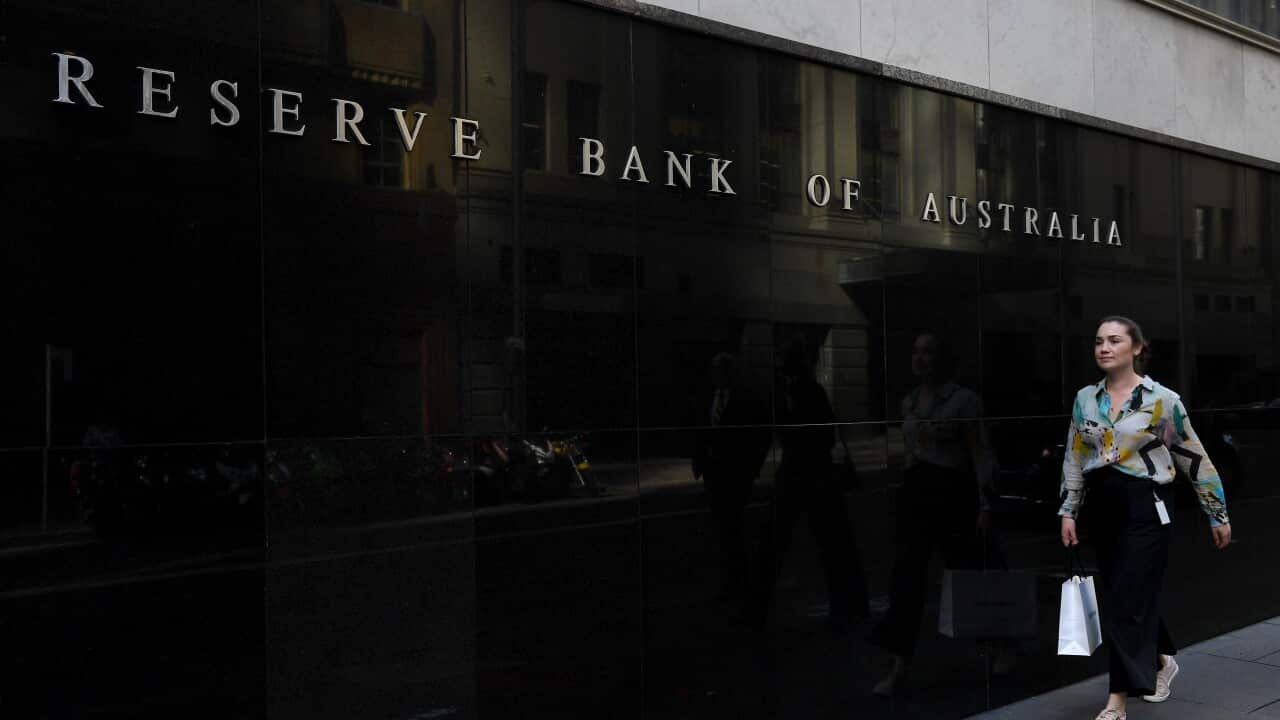Prime Minister Scott Morrison denies his government's housing policies will push up prices even after his superannuation minister said the proposed first home buyers plan could lead to an initial price bump.
But Labor leader Anthony Albanese says the scheme announced at the official Liberal campaign launch on Sunday is "desperation" and a "thought bubble".
Earlier on Monday, Superannuation Minister Jane Hume said there might be a "short term" rise in house prices , which would allow first home buyers to access some of their super for a deposit.
But Mr Morrison said the scheme would work in combination with separate announcements to increase housing supply.
When asked what would happen if the Australian property bubble burst, the prime minister deflected the question.
"What you're suggesting is owning your own home is a gamble Australians shouldn't take, I don't agree with that," Mr Morrison told ABC 7.30 on Monday night.
"Owning your home is the most significant asset for most Australians that they will ever own.
"I know it's the case for Jenny and I, and I believe buying a home is the best economic decision that you can make.
"And it's the strongest thing you can do for families and communities."
Mr Morrison said the scheme was a way to help people deal with rising cost of living pressures and get them into their own homes.
"You let them use their own money," he said.
"You don't lock it away from them where someone else is in control of it ... it's theirs."

The Coalition's proposal would allow first home buyers to access some of their super for a deposit. Source: AAP / LUKAS COCH/AAPIMAGE
"If you take super away from people, then you'll have higher deficits and bills from the government in the future," he told reporters in Perth on Monday.
"This is an attack on future savings, it's an attack on future generations, it's not about assisting people."
Under the Coalition's proposal, first home buyers would be able to access 40 per cent of their superannuation up to $50,000 to buy a house.
In addition, a re-elected Coalition would expand a scheme to encourage older Australians to downsize and free up housing supply.
Mr Albanese said even senior Liberals had opposed the proposed superannuation policy in the past.
"The government in its desperation has come up with a thought bubble that according to itself has not been modelled (and) they have no idea what the impact will be," he said.
"Minister Hume belled the cat, (she) has said that it will put upward pressure on housing prices."
Labor's housing alternative involves a "help to buy" scheme where 10,000 low income earners would be eligible for a government equity contribution to help enter the housing market.
The Australian Institute of Superannuation Trustees said the Coalition's plan would drive up house prices and undermine the core purpose of the super system.
"Using super as a deposit will drive up property prices, leaving Australians with higher debt and depleted retirement savings," the institute's chief executive Eva Scheerlinck said.
"Superannuation ... is not a piggy bank the government can open at its convenience to avoid dealing with the real systemic issues facing first home buyers."
She said it would reduce asset diversification in retirement accounts.
"First home buyers are being asked to choose between a home and saving for their retirement, they should be able to have both," Ms Scheerlinck said.
"The Australian government must address this modern-day inequity by addressing supply issues rather than raiding super. A first home should not come at the expense of dignity in retirement."
Scott Morrison rejects recession suggestion ahead of predicted unemployment rate drop
Mr Morrison has dismissed suggestions the Australian economy faces the risk of a recession at a time when figures this week could see the unemployment rate fall below 4 per cent.
Recent volatility in global financial markets has been sparked by fears the US Federal Reserve will overshoot on lifting interest rates to combat heated inflation pressures in the United States.
The Reserve Bank has already started lifting the cash rate in the face of the highest rate of inflation in Australia in more than 20 years and with little sign of pressures receding with petrol prices on the rise again.

Workers are seen on a construction site in Sydney. Source: AAP / BIANCA DE MARCHI/AAPIMAGE
"Rising interest rates and rising inflation, as we all know, is the product of what we're seeing with a global set of forces on Australia," Mr Morrison said.
"Unemployment is at four per cent and falling. That is not a sign of a weakening economy. That's the sign of a strengthening economy."
April jobs figures will be released on Thursday, two days out from election day.
Economists expect the unemployment rate to have eased to 3.9 per cent in April from 4 per cent in March, the lowest level since in 1974, as 30,000 people joined the workforce.
However, Wednesday's crucial wages figures will confirm that despite all the government's chest-beating about a strong economy, voters' pay is growing at about half the rate of inflation.
The wage price index - data used by the RBA and Treasury to assess wages growth - is forecast by economists to have grown at a slightly more upbeat 0.8 per cent in the March quarter.
However, this would still leave the annual rate at 2.5 per cent.
While the highest rate since 2014, it would be substantially below the annual rate of inflation at 5.1 per cent as of the March quarter.
"We want to see the unemployment rate come down as low as possible, but .... the defining challenge in the jobs market is real wages going backwards," Labor's treasury spokesperson Jim Chalmers told reporters in Brisbane.
"The government always wants to pat themselves on the back for the unemployment rate as a desperate distraction from all of the other economic challenges that we have."
'Outraged and confused': Advance Australia signs ruled in breach of electoral laws
The Australian Electoral Commission (AEC) says signs depicting two independent candidates as Greens are in breach of federal electoral laws.
The signs were authorised by conservative political lobby group Advance Australia, and depicted ACT Senate candidate David Pocock and independent MP for Warringah, Zali Steggall, wearing clothing containing the official logo of the Australian Greens.
Advance Australia has agreed not to display the signs, to avoid court action.
Mr Pocock welcomed the AEC's findings, and said he was disappointed it had taken more than three weeks for the decision to be reached.
"We have received hundreds of emails, calls, and messages from people across the ACT outraged and confused by Advance Australia's false and misleading advertising," he said in a statement.
"We have today written to the AEC requesting that Advance Australia be prosecuted for this flagrant breach of Australian electoral law."
Crossbenchers lay down priorities as hung parliament prospect looms
Ms Steggall, Greens Leader Adam Bandt, United Australia Party Leader Craig Kelly, and independent Senator Rex Patrick on Monday appeared on a National Press Club panel, hosted by club president and ABC 7.30's chief political correspondent Laura Tingle.
With a hung parliament a possibility following the 21 May election, Ms Tingle questioned the panel on what the crossbenchers might seek to gain from the major parties if they hold the balance of power.
Greens leader and federal member for Melbourne Adam Bandt said the party would push the next government to act on the climate crisis and stop opening new coal and gas projects.
"We also want to tackle the cost of living crisis, getting dental and mental health into Medicare will be a priority for us," Mr Bandt said.
"I want to see justice for First Nations people with progress on truth and treaty as well as voice. And also push to wipe student debt and lift support for people who are doing it tough by lifting income support.
"So those things would be on the table and, yes, there is a real opportunity and a power-sharing parliament to reform parliament and the institutions to make them work better and more transparently."
Senator Patrick said the things Mr Bandt listed were already happening in the Senate.
"One of the things that people need to do, however, when they're considering who they vote for is [to] understand that it's a long game," he said.
"I often see people poking and trying to get a quick answer from parliamentarians but actually in most cases it's best done in a slow and methodical manner and that's what happens in the Senate and it would be good to see some of those changes in the House."

Independent Senator Rex Patrick during Senate Estimates at Parliament House in Canberra, 17 February 2022. Source: AAP / MICK TSIKAS/AAPIMAGE
Mr Kelly claimed Bureau of Statistics data showed a 22 per cent increase deaths in January and "no one can explain it".
"There is a crisis in healthcare in our nation. We have had these government bureaucrats, health ministers - both federal and state, Labor and Liberal - running around saying they're keeping us safe," he said.
Ms Steggall said she would focus on bringing "integrity and truth" to politics.
"We must have a clear and detailed framework around how we are going to address global warming and climate change. We need to embrace the opportunities that come out of the biggest challenge we face which is the transition to net zero. But to do that, we need fiscal discipline," she said.
"We need to end the rorts. We have to have a federal integrity commission and anti-corruption with teeth, with powers, to ensure Australians can trust that their taxpayer dollar is being spent to their best benefit."
The prime minister denies misrepresenting AUKUS pact
The prime minister used the trilateral AUKUS agreement to play politics with national security by not informing Labor until the very last minute, the Opposition leader says.
Top brass in the United States reportedly entrusted the Liberal prime minister to bring the Labor leader into the tent, requiring bipartisan support before proceeding with the decades-long partnership as a key pillar of the agreement, according to Nine newspapers.
Labor was subsequently informed the day before the agreement was made public in mid-September 2021.
Mr Albanese said Mr Morrison had put his personal interest ahead of the national interest by not seeking bipartisanship from Labor ahead of the announcement.
The US expected the Morrison government to brief Labor as a prerequisite to the agreement would be bipartisan support, Mr Albanese told reporters on Monday.
"Even though Labor could not have been more clear, more decisive, or more certain about our support for AUKUS, this prime minister has continued to play politics," he said.
"The US administration, the information is out there, that they expected Labor to be briefed because this is an issue that doesn't go for a year or a term of parliament."
Mr Morrison defended his actions, saying he wasn't going to risk the AUKUS agreement by informing Labor about the negotiations too early.
He also denied the veracity of the report, saying the government "absolutely complied with all of the issues that needed to be addressed in forming that partnership".
"We understood absolutely what the requirements were and we met them 100 per cent," Mr Morrison told reporters on Monday.
"I find it passing strange that you think we wouldn't have maintained the absolute discretion, as we did with so many of our own cabinet."
Mr Morrison said the security pact between Australia, the US and the United Kingdom did receive bipartisan support and lauded himself for being the prime minister to secure the agreement.
"This was a process that, for 18 months, painstakingly working through incredible detail, incredibly sensitive issues, highly confidential. This wasn't something I was going to be loose with," he said.
"AUKUS is a groundbreaking agreement, the most significant defence security agreement Australia has entered into in over 70 years. And I was not going to risk that on the Labor Party."
But Mr Albanese hit back and accused Mr Morrison of breaking the trust of international partners after private text messages between the Australian prime minister and his French counterpart leaked to the media.
"I have national security briefings all the time. What this prime minister always does is put the political interests first before the national interest. It's always about the politics," Mr Albanese said.
"Labor laid the foundations for the US alliance during the Second World War when Australia turned to Labor in its darkest hour. We have been supporters of the US alliance ever since."
The procurement of nuclear-propelled submarines for Australia through AUKUS is the first time the US has agreed to share its nuclear submarine technology since bringing in Britain in 1958.
Mr Morrison said Australians needed to trust the government which had the foresight to put the agreement together in the first place.
"Previous Australian prime ministers and governments have tried and failed. I was not going to fail," he said.
Peter Dutton's comments on Chinese warship 'highly dangerous': Mark McGowan
Western Australia Premier Mark McGowan has described Defence Minister Peter Dutton's language as "highly dangerous" when questioned about a Chinese warship spotted off the state's coast.
Mr McGowan was questioned about the ship while speaking to reporters in Perth about the Coalition's proposed housing policy.
The Chinese Foreign Ministry said the ship, which was spotted on 13 May, remained in international waters and obeyed international law.
Mr Dutton claimed the incident was an "act of aggression" and the ship had crossed into Australia's exclusive economic zone.
Chinese Foreign Ministry spokesperson Zhao Lijian said Beijing had not broken any rules.
Additional reporting by Amy Hall



















